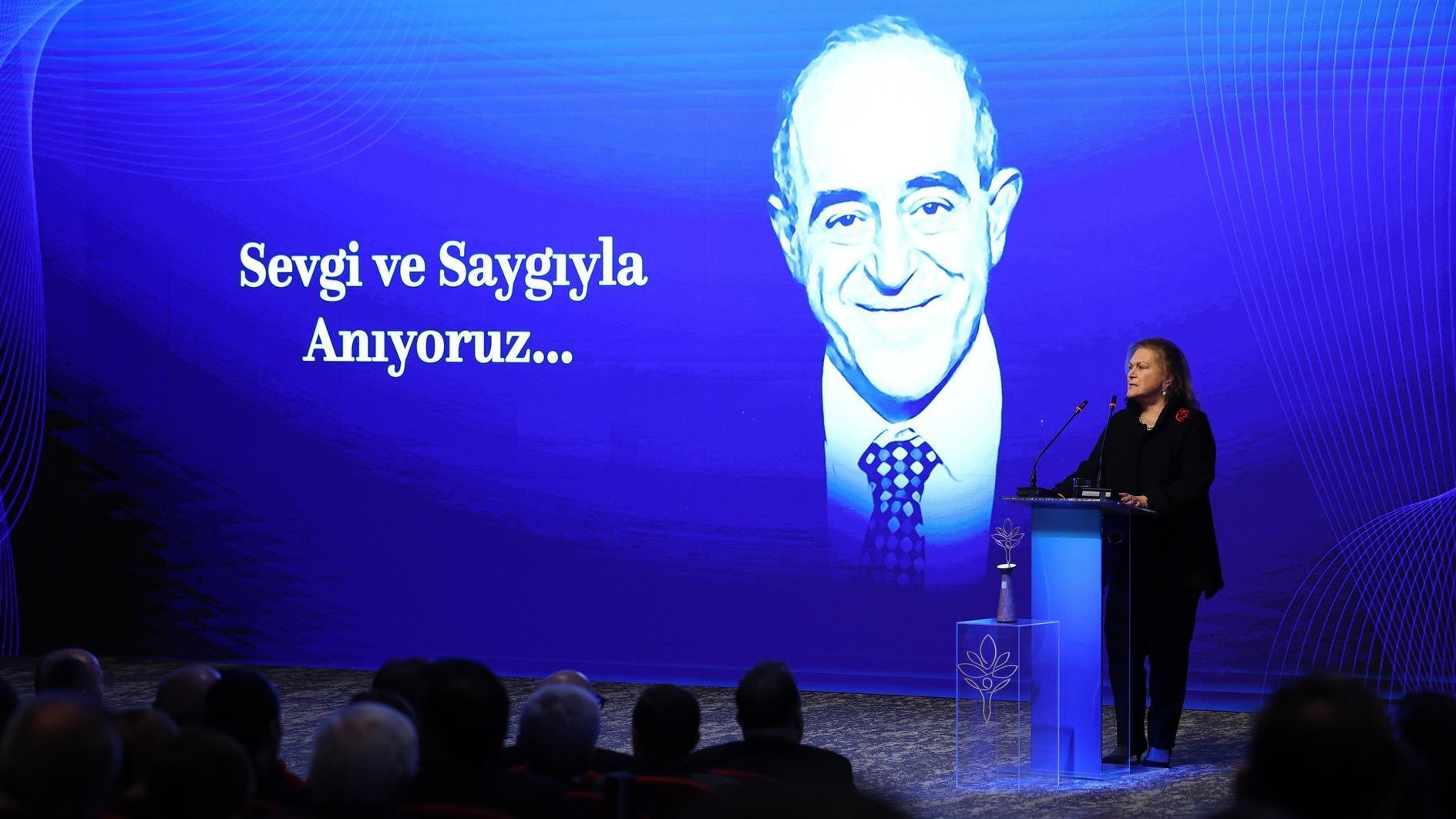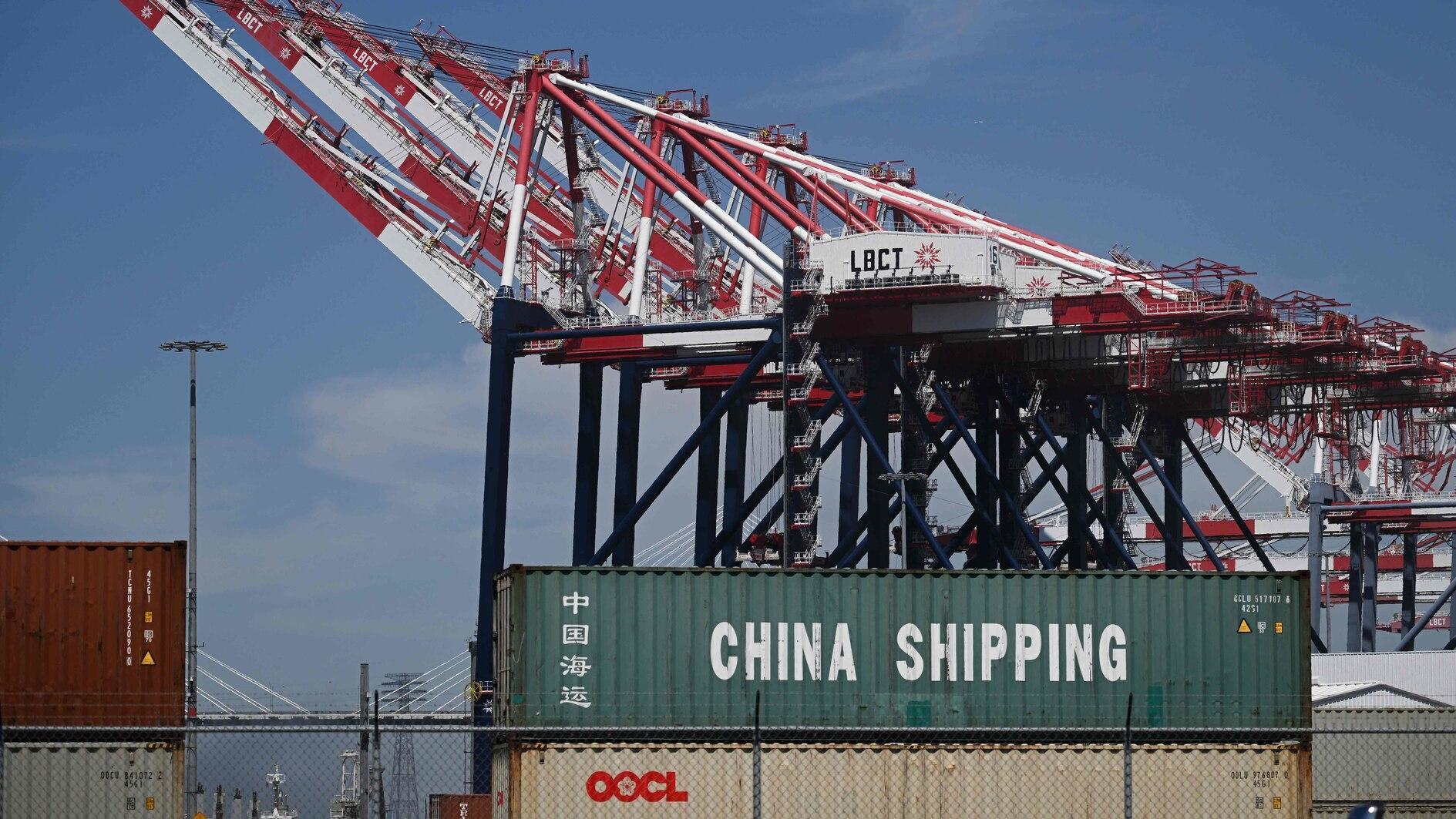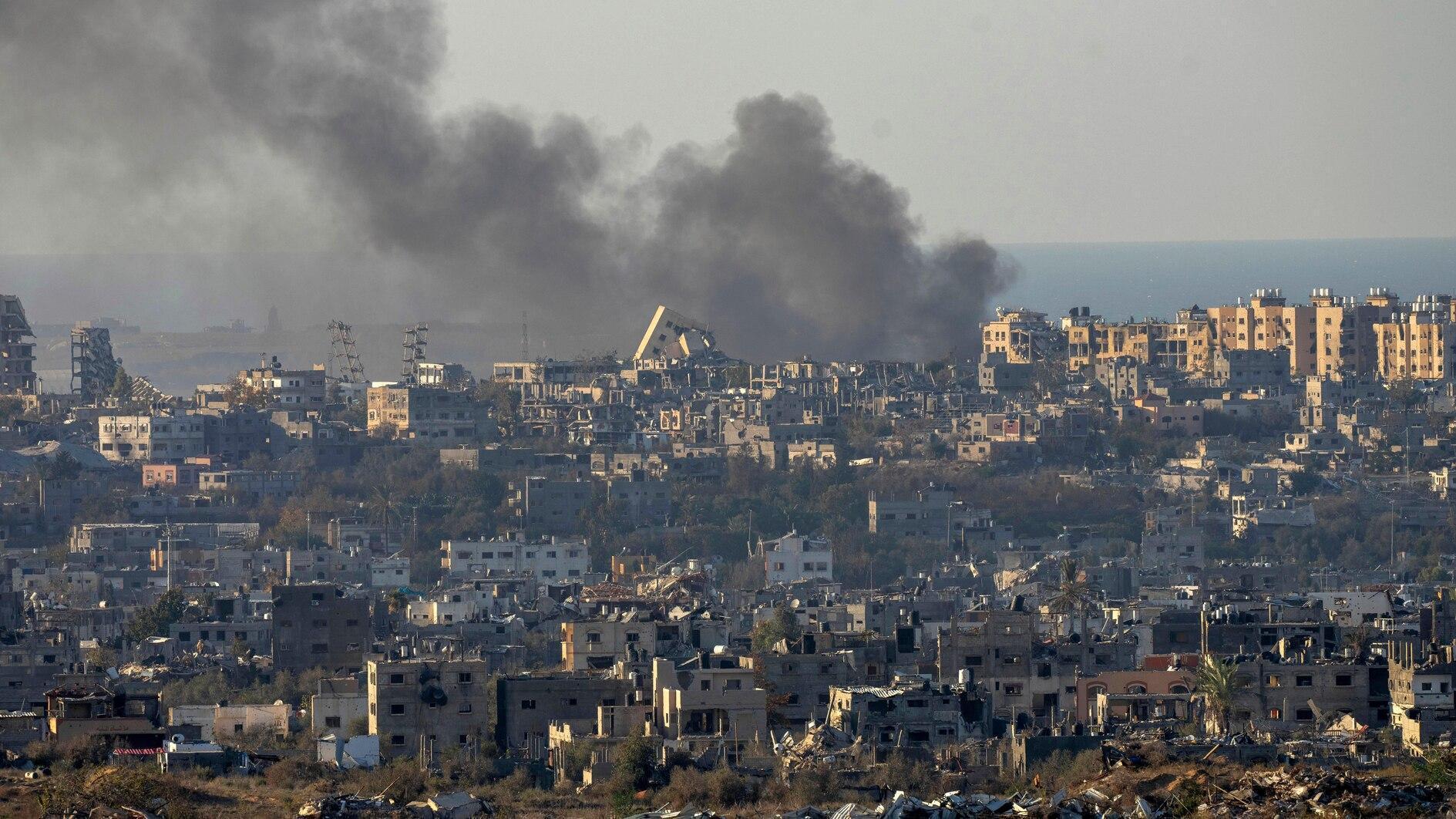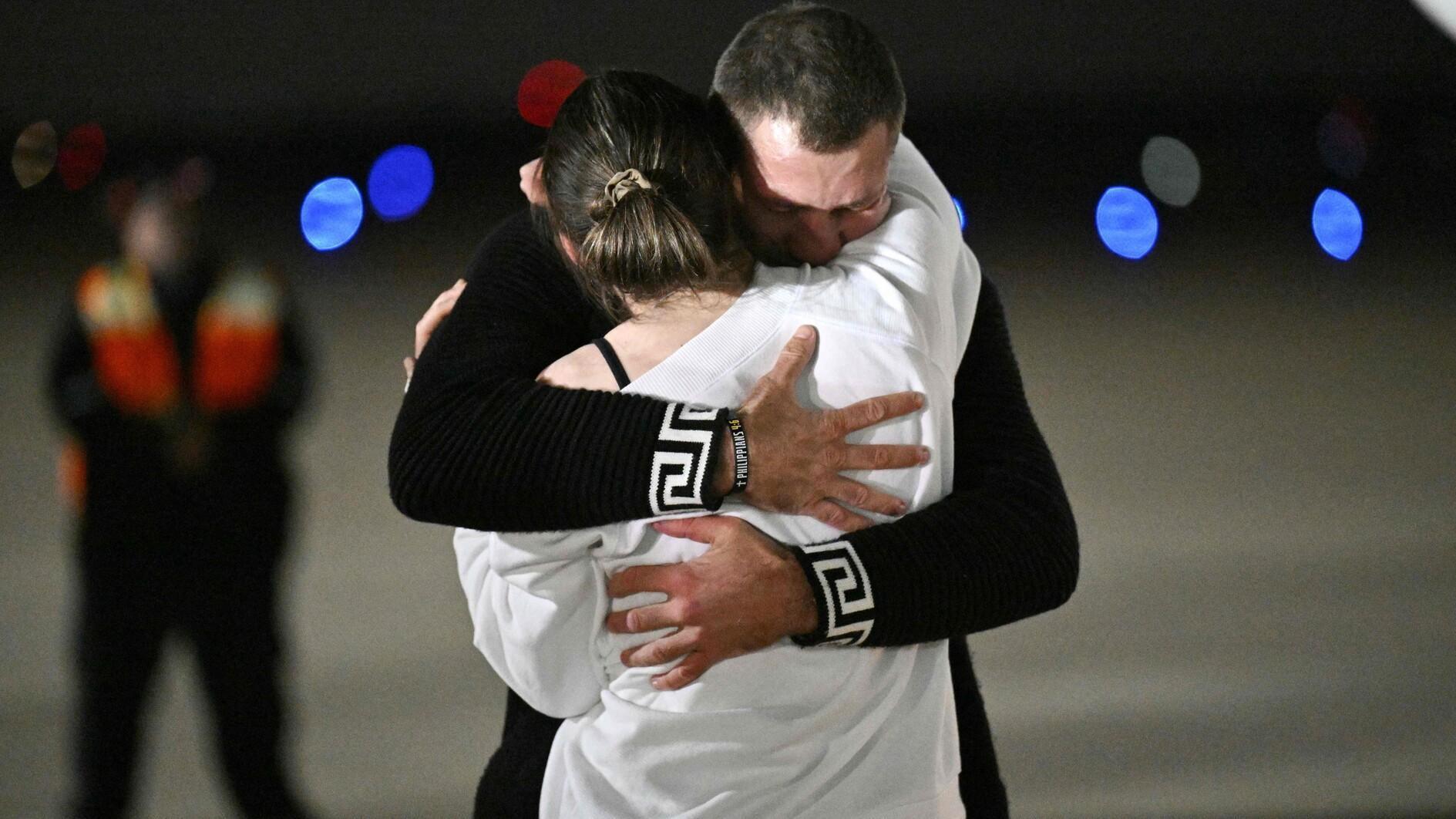Thai junta summons ousted leaders, imposes travel ban
BANGKOK - Agence France-Presse
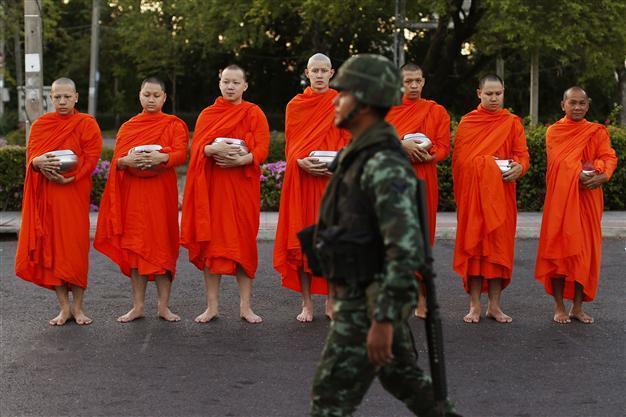
A soldier walks past barefoot Buddhist monks begging for alms outside a temple near Government House in Bangkok May 23, 2014. REUTERS Photo
Thailand's new military junta summoned the kingdom's ousted government leaders Friday and banned them from leaving the country, following a coup that has provoked an international outcry.Vowing to halt months of political bloodshed, coup makers led by the tough-talking army chief declared a nationwide night-time curfew and ordered masses of rival demonstrators off the streets.
Former prime minister Yingluck Shinawatra, who was removed from office in a controversial court ruling earlier this month, arrived at an army facility in Bangkok in her private bullet-proof vehicle after a summons from the military regime.
Dozens of prominent figures from both sides of the political divide, including Yingluck's successor Niwattumrong Boonsongpaisan, were ordered to show up. It was unclear what awaited them.
The army said 155 prominent figures, including the ousted government leaders, were banned from leaving the country without permission.
The military regime headed by General Prayut Chan-O-Cha suspended most of the constitution, drawing rebukes from Washington, Europe and UN chief Ban Ki-moon, who all called for civilian control to be restored.
Secretary of State John Kerry said there was "no justification" for a coup that would have "negative implications" for US relations, and demanded early elections. The Pentagon said it was reviewing military cooperation with America's oldest ally in Asia.
Southeast Asian neighbours urged caution, with Malaysia warning its nationals to defer non-essential travel to Thailand.
Japan, Thailand's biggest foreign investor, stopped short of a travel warning but called for a "prompt restoration of a democratic political system", as Toyota and Honda curtailed night-time shifts at their Thai plants because of the curfew.
Thailand has been locked in a political crisis since a 2006 military coup that deposed Yingluck's elder brother Thaksin Shinawatra, a billionaire tycoon-turned-populist politician who clashed with the royalist establishment.
The military held on to power for more than a year after the 2006 coup and since then, a power bloc centred on Thaksin's family has battled for primacy with a Bangkok-based royalist camp closely tied to the powerful military.
His supporters, known as the "Red Shirts", had warned that an overthrow of the government could trigger civil war and all eyes are on how the movement will respond.
All television and radio stations including foreign broadcasters were ordered to air only a steady stream of army announcements, and the junta warned it would block social media platforms that carry anti-coup content.
Bangkok was calm on Friday although its usually bustling streets were quieter than usual with schools ordered to temporarily close across the country.
Small anti-coup protests broke out in the city, while some people took to the Internet to vent their anger, posting messages such as "Thailand's democracy was murdered by the coup".
In contrast to the previous coup eight years ago, there was no sign of tanks or significant troop numbers deployed around the capital.
While some people welcomed the coup as a possible way out of the crisis, others voiced unease at the power grab.
"The army can do anything now and the people will not know," said Wanit, a 50-year-old taxi driver who gave only one name.
A day earlier as the coup unfolded, there were dramatic scenes at a military-hosted meeting between the kingdom's political rivals as army trucks blocked exits.
Inside, Prayut abruptly announced he was taking power after the two sides failed to reach a compromise, according to an official at the talks who did not want to be named.
"Because you cannot agree and the situation is likely to escalate into violence I declare that I seize power, so soldiers detain everyone inside this room," the source quoted Prayut as saying.
"Don't fight with soldiers," the commander-in-chief warned, before armed troops detained those present one by one.
Election officials and senators were later released while others, including the leaders of the two main political parties as well as the rival protest leaders, were taken away to an undisclosed location.
The opposition said some of its politicians were released overnight but the whereabouts of the others remained unknown.
Thailand's democratic development has now been interrupted by 19 actual or attempted coups since 1932, interventions that traditionally require the monarchy's approval.
It was unclear whether the palace had blessed Prayut's coup.
Some observers see the crisis as a struggle to decide who will run the country when the more than six-decade reign of ailing, 86-year-old King Bhumibol Adulyadej eventually ends.
Experts at the Siam Intelligence Unit, a Bangkok-based think-tank, expect an interim premier to be named and the junta to rule for up to two years and draft a "draconian" new constitution.
Some fear more turmoil.
"The coup is not a solution at all to end the crisis. This will become the crisis," said Pavin Chachavalpongpun of the Centre for Southeast Asian Studies at Japan's Kyoto University.


